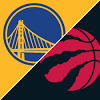Rangers returned to relevance after O'Connor trade with Canadiens

Legendary hockey reporter Stan Fischler writes a weekly scrapbook for NHL.com. Fischler, known as "The Hockey Maven," shares his humor and insight with readers each Wednesday.
With excitement intensifying toward the 2025 NHL Trade Deadline on March 7, there was an arresting exchange between the Montreal Canadiens and New York Rangers on Aug. 19, 1947, that inspired a chain reaction of front office feuding on both sides of the border and a totally unexpected ending.
It seemed impossible at the time, but a pint-sized, over-the-hill center was traded 79 years ago, wound up winning the Hart and Lady Byng Trophies and missed the NHL scoring championship by only a point.
That castaway, Buddy O'Connor, was the centerpiece of one of the most one-sided trades in the NHL history. It pitted Montreal Canadiens managing director Frank Selke, Sr. against New York Rangers coach/general manager Frank Boucher.
Having gone five years without a Stanley Cup Playoff team, Boucher was desperate to reach the postseason. On the other side, Selke's defending champions were upset in the 1947 Stanley Cup Final by the Toronto Maple Leafs and decided to rebuild after a 4-2 loss in the best-of-7 series.
"Our youngsters were doing quite well, but they needed help and luckily I found a trading target in Montreal," wrote Boucher in his autobiography, "When the Rangers Were Young."
Selke believed that O'Connor, a 31-year-old center and at 5-foot-8, 142 pounds the smallest player in the NHL, had lost his touch and put him on the trading block with minor league defenseman Frank Eddolls.
"I was surprised that O'Connor wasn't getting the ice time that I felt he deserved," Boucher said. "I also knew that Eddolls, playing in the minors, should have been in the NHL."
The Rangers gambled and offered bespectacled young defenseman Hal Laycoe and forwards Joe Bell and George Robertson. Laycoe was the bait and Selke bit. The deal was completed with the added approval of Canadiens coach Dick Irvin.
Getting the green light in New York was more complicated because Boucher and his boss, Lester Patrick, weren't talking to each other and had not for months.
"Lester vetoed the trade on the grounds that the Rangers would be giving up three good players for two older ones," wrote Patrick biographer Eric Whitehead. "Boucher countered by telling (Madison Square) Garden's head man, Gen. John Reed Kilpatrick, he'd resign unless he was given authority to make the deal."
Said Boucher: "I told the General that those three young fellows couldn't make us a contender and I'm sick to death of never getting results. Our problems were so immediate that I couldn't accept Lester's assessment. The general agreed with me, and I made the deal."
Boucher was confident that he had triumphed over Selke. During training camp in Saranac Lake, New York World-Telegram hockey writer Jim Burchard asked Boucher to select the order of finish for 1947-48. Boucher picked the defending champion Canadiens to finish fifth -- out of the playoffs -- and forecast that the Rangers would make the postseason for the first time in five years.
"I infuriated Selke," Boucher explained in his autobiography, "because I cited the acquisition of O'Connor and Eddolls as a major reason for our rise. Selke assumed I'd been bragging and complained bitterly to the press."
The next day's World-Telegram listed Boucher's order of finish: 1. Toronto; 2. Detroit; 3 Boston; 4. Rangers; 5. Montreal; 6. Chicago.
As it happened, the Rangers' leader eventually would score a bullseye.
The first on-ice clue that Boucher was winning emerged in the opening game of the season, a 2-1 Rangers win at the Forum. Immediately, Canadian hockey critics took aim at Montreal's high command.
"If we didn't know that Selke and Irvin were temperate men," wrote a Toronto columnist, "we would have been forced to believe that Boucher had engineered that deal after the Montrealers had been entertained at Hogan's Irish House for several hours. All three of the players Boucher gave up are now languishing in the minors."
After the Canadiens were defeated 9-1 by the Boston Bruins on Nov. 15, it appeared as if the Rangers might beat them out of the playoffs. Confronted by reporters, Boucher reiterated, "The Canadiens won't finish in the first four because the other clubs are just stronger than them."


 United States
United States Argentina
Argentina  Australia
Australia  Austria
Austria  Brazil
Brazil  Canada
Canada  Chile
Chile  Czechia
Czechia  France
France  Germany
Germany  Greece
Greece  Italy
Italy  Mexico
Mexico  New Zealand
New Zealand  Nigeria
Nigeria  Norway
Norway  Poland
Poland  Portugal
Portugal  Sweden
Sweden  Switzerland
Switzerland  United Kingdom
United Kingdom 
























